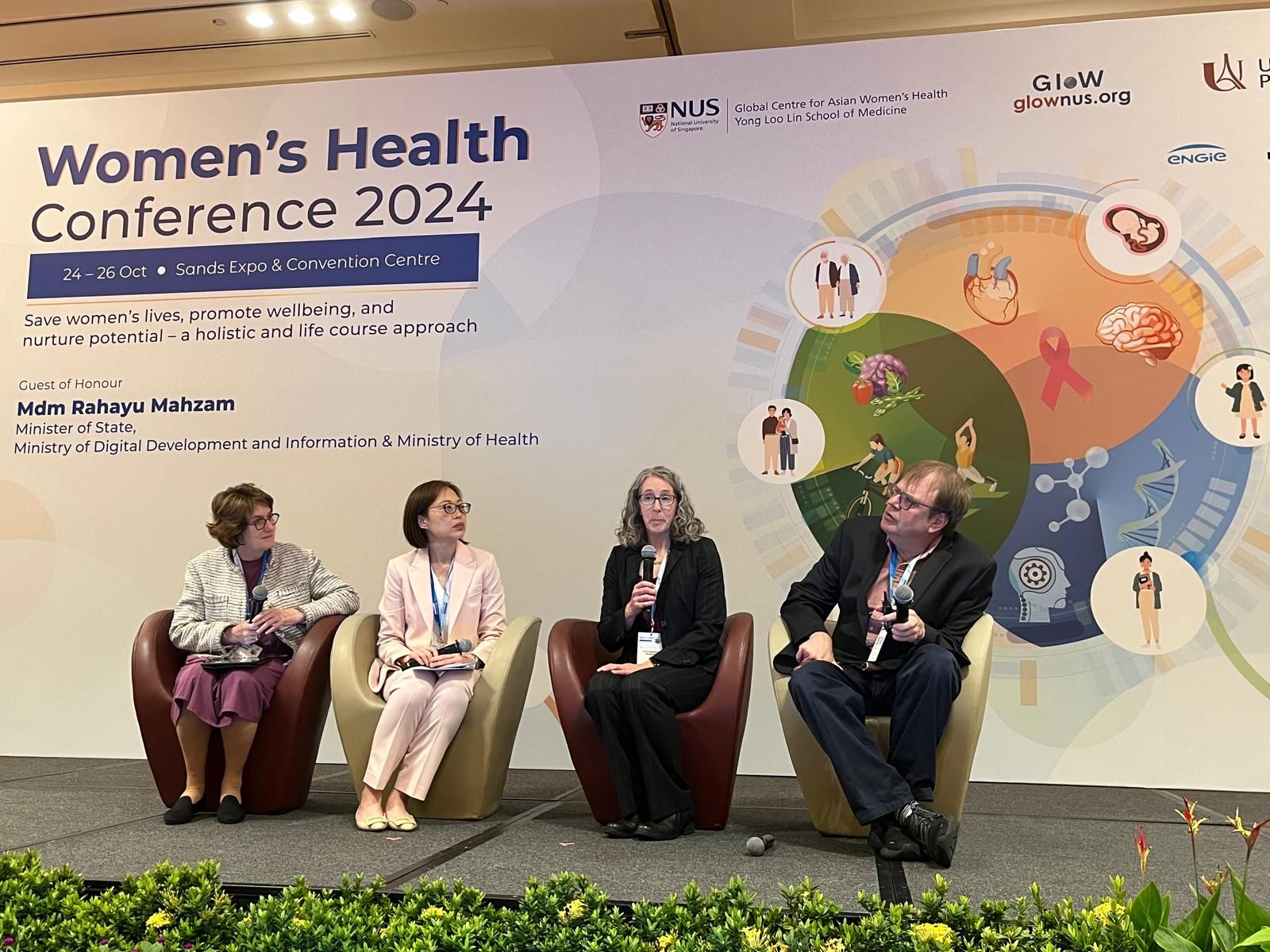
The Women’s Health Conference 2024, jointly hosted by the Global Centre for Asian Women's Health (GloW) at the Yong Loo Lin School of Medicine, National University of Singapore (NUS Medicine) and the Université Paris Cité (UPCité), highlighted the need to support women’s health over their life course as they face distinct health milestones and challenges throughout their lives.
The three day conference is being held from 24 to 26 October at Sands Expo & Convention Centre, Marina Bay Sands Singapore. The conference sessions will focus on nutrition as a key modifiable factor in preventing health conditions and diseases. Specifically, it involves exploring the impact of dietary habits, food choices, and long-term health outcomes on women. Local and international thought leaders will present the latest innovations in women's health from research to practical applications.
Advancing women's health could improve future generations' health and contribute to society's well-being. One of the key focuses of the conference was the call for a shift in women’s health to prioritise the prevention and early detection of non-communicable diseases. There is tremendous potential for this to reduce the disease burden among women.
Over the three days, world-renowned experts including Heather Eliassen, Qi Sun, Walter Willet, Frank B. Hu from Harvard University, Melissa L, Bondy from Standford University, Paul Albert from the US. National Cancer Institute, Miguel Martínez-González from Universidad de Navarra, Chee Cheng Ean, Executive Director, National University Cancer Institute as well as experts from Mozambique, Tunisia and Indonesia will discuss ways to progress cancer prevention and reduce risk factors for cardiovascular diseases. Enhancing maternal health through effective research, screening, and prevention will also be discussed on the last day of the conference.
Professor Zhang Cuilin, Director of GloW at NUS Medicine, who is co-author of two recent studies that demonstrate how the behaviour and food choices of mothers and mothers-to-be impact health outcomes beyond pregnancy, will outline how nutrition affects women’s health over the life course. According to the first study, breastfeeding was associated with a much lower risk of cardiovascular disease (CVD). Longer breastfeeding duration was also associated with a lower CVD risk in women with type 2 diabetes, gestational diabetes (GDM). A second study found that pregnant U.S. women with lower levels of POPs in their blood and greater adherence to a Mediterranean diet had the lowest risk of GDM.
On the second day of the conference, a cooking demonstration and panel discussion will showcase culinary strategies for optimal nutrition, chaired by Greg Drescher from the Culinary Institute of America, U.S. and Singapore campuses.
Professor Brian Kennedy, Director of the Healthy Longevity Translational Research Program and Bia-Echo Asia Centre for Reproductive Longevity and Equality at NUS Medicine, will discuss 'Aging and reproductive aging as overlapping phenomena'. Additionally, two sessions will explore novel technologies that can enhance women's health, including omics.
A panel discussion jointly helmed with the World Economic Forum, will be moderated by Professor Michelle Williams, former Dean of the Harvard T.H. Chan School of Public Health at Harvard University. The panel will feature speakers including Amira Ghouaibi, Head of the Global Alliance for Women’s Health, World Economic Forum, Dr Sanjana Bhardwaj, Deputy Director, Program Advocacy and Communications, Bill and Melinda Gates Foundation, Sahil Tesfu, Chief Strategy Officer at Essity, Dr Megan Greenfield, Partner with McKinsey & Company, and Professor Chong Yap Seng, Dean of NUS Medicine. They Will be discussing ways to address diverse health challenges faced by women in Asia.




